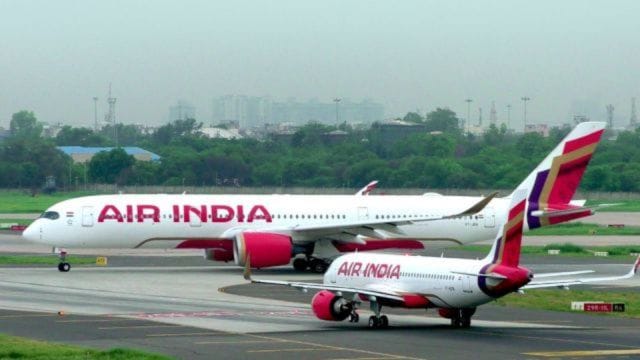Stay updated with the latest - Click here to follow us on Instagram
Drunk passenger molests air hostess on Delhi-Shirdi flight Mumbai
Air hostess inappropriately touched
 Multiple airports suspended operations until further notice after Operation Sindoor
(File)
Multiple airports suspended operations until further notice after Operation Sindoor
(File)A drunk male passenger allegedly molested an air hostess on a Delhi–Shirdi IndiGo flight, according to Maharashtra police. The incident occurred near the aircraft’s lavatory, where the passenger reportedly touched the crew member inappropriately.
Following the incident, the air hostess alerted her crew manager, who informed airport security upon landing at Shirdi on Friday afternoon. The passenger was taken into custody and escorted to the Rahata police station, where a case of molestation was registered.
A medical examination confirmed the passenger had consumed alcohol. He was later served a notice by Rahata Police.
Air India has faced a series of troubling in-flight incidents in recent years. In 2017, Ganesh Parkar, a business class passenger on a Mumbai–Newark flight, moved to an empty seat in economy to sit beside a woman and groped her while she was asleep. The woman, who did not know Parkar, was found crying by the crew in the rear galley. Parkar later handed her two handwritten notes apologising for what he described as a “moment’s stupidity,” stating, “I acknowledge I was stupid.”
In November 2024, another high-profile case sparked national outrage when Shankar Mishra, a drunk passenger, urinated on an elderly woman in business class during an Air India flight. Mishra, then a Vice President at Wells Fargo, was fired shortly after the incident. His father later claimed that Mishra has faced over 200 job rejections since his dismissal, calling the termination “hasty” and lacking due process.
In 2025, a similar incident occurred on a Delhi–Bangkok Air India flight, where an intoxicated Indian national urinated on a fellow passenger. The case prompted investigations by both airline and government authorities, as calls grew for stronger deterrents against in-flight misconduct.
Additionally, a Supreme Court judge recounted a disturbing flight experience during a court hearing on unruly air travelers. Justice KV Vishwanathan described how an intoxicated co-passenger locked himself inside the aircraft lavatory and remained there, asleep, for 30 minutes. Despite repeated attempts by the cabin crew to intervene, they hesitated to unlock the door with a master key, uncertain about the passenger’s condition.
In response to these incidents, the Supreme Court has asked the Directorate General of Civil Aviation (DGCA) to propose “creative” solutions for handling such situations. The bench also questioned how airlines can manage passengers who become heavily intoxicated mid-flight, even if boarding protocols screen for alcohol consumption beforehand.
(With PTI inputs)







